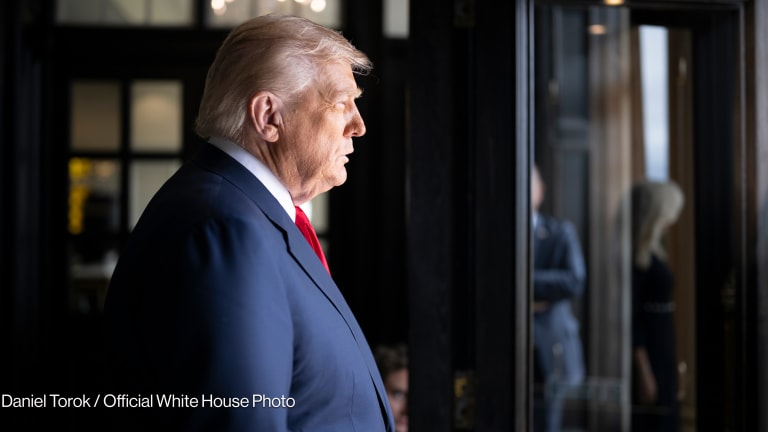
With less than a week left in office, U.S. President Donald Trump’s administration took one final shot at the country’s foreign assistance programs by issuing a multibillion-dollar rescission package, which the administration’s own officials admit is unlikely to have much material effect.
This is the third — and largest — attempt by the White House to pull back funding that Congress already appropriated. It arrived just as President-elect Joe Biden unveiled a COVID-19 spending plan that includes an additional $11 billion for international response efforts, highlighting the stark contrast between the outgoing and incoming administrations’ priorities.
Trump’s rescission package includes $27.4 billion overall, more than half of which — roughly $17 billion — targets the international affairs budget. Given the arrival of this rescission package in the first half of the 2021 fiscal year, and less than a week before Biden’s administration takes office, it is expected to be reversed before causing much disruption.
The White House set its sights on cutting foreign aid funding during the heated and lengthy negotiations over a new COVID-19 relief package, as well as an omnibus spending bill for 2021, which were both finally agreed in December. While these are two separate bills, Trump misleadingly charged that lawmakers were inserting “wasteful” foreign assistance spending into COVID-19 relief at the expense of assistance to Americans.
“The next administration can easily undo this.”
— Jim Richardson, director, DOS Office of Foreign AssistanceWhen the White House sends a rescission to Congress and issues agencies an accompanying apportionment memo from the Office of Management and Budget, the funding included is typically frozen for 45 days, after which Congress can accept or reject the proposal. While some have worried a 45-day freeze on billions of dollars would still cause significant harm during a pandemic, the funding is unlikely to be frozen that long, and agencies would likely not be ready to spend it during that time frame anyway.
“The reality is we're at the very front end of the fiscal year. We haven't even come up with our spending plan for 2021,” Jim Richardson, director of the Office of Foreign Assistance at the Department of State, told Devex.
U.S. foreign assistance spending is typically low in the first two quarters of the fiscal year, before ramping up dramatically as agencies work to push unobligated funding out the door. Since this rescission package targets funding for fiscal year 2021, agencies would likely not be ready to obligate it in the next 45 days anyway.
One exception to that is $4 billion in emergency funding included in the COVID-19 relief package that Congress passed in December, which was intended to support global vaccination efforts through Gavi, the Vaccine Alliance, according to the Trump administration’s own plan for distributing excess vaccines.
There was an expectation of moving that money faster, Richardson said, but he added that the next administration will be able to make that happen.
What Trump plans to do with America's leftover COVID-19 vaccines
President Trump issued an executive order on COVID-19 vaccine access, which prioritizes Americans but includes some plans to facilitate international distribution. Devex spoke to a senior State Department official to learn more.
To lift the freeze on any of the affected funding, it would simply have to issue a new apportionment memo to the agencies affected by this rescission, instructing them to move forward with obligating the funding and undoing the memo issued by OMB on Thursday.
“There's clearly a bipartisan coalition in Congress that supports foreign assistance. So obviously I don't think this has legs, but obviously the White House wanted to make a point,” Richardson said.
“The next administration can easily undo this,” he added.
Just as Trump sent the rescission plan to Congress, Biden’s team unveiled an “emergency legislative package” for COVID-19 that includes an additional $11 billion for international pandemic response efforts and vows to “Restore U.S. leadership globally.”
The funding will go toward international health and humanitarian response, mitigating the pandemic’s impacts on global health, food security, and gender-based violence, medical countermeasures for COVID-19, and building capacity to fight “COVID-19, its variants, and emerging biological threats,” the plan reads.
Advocates have pushed for $20 billion in U.S. government funding for international pandemic response. Many of them welcomed Biden’s proposal and pledged to work with Congress to reach the full target amount.
Search for articles
Most Read
- 1
- 2
- 3
- 4
- 5








